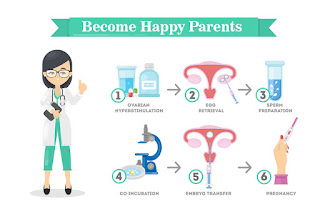Birth Control Options: Choosing What's Right for You?
When it comes to birth control, there
are many options available. From condoms and IUDs to the pill and more,
choosing the right option for you can be overwhelming. It's important to
understand your body and lifestyle before committing to a method of contraception
so that you don't end up with an unwanted pregnancy or health issues down the
road. To help make this process easier, as the best gynaecologist in Indore, we've put together some key
information about different types of birth control so that you can decide which
one is best for you.
The Pill: The most common form of
hormonal contraception is “the pill” – a combination oral contraceptive
containing both estrogen and progesterone hormones (and just progestin in some
cases). The pill works by preventing ovulation each month; when taken correctly
every day at roughly the same time it’s over 99% effective in preventing
pregnancy! However if not taken as directed (missing doses or taking them late)
its effectiveness decreases significantly making it less reliable than other
methods such as long-acting reversible contraceptives like intrauterine devices
(IUDs).
Condoms: Condoms are another
popular form of contraceptive used around the world - They work by forming a
physical barrier between sperm cells from entering into contact with eggs
during sexual intercourse thus reducing the chances of conception occurring
naturally without any additional hormones being introduced into your body
system! They're also great at protecting against sexually transmitted
infections which makes them an even more desirable choice among couples looking
for extra protection while still enjoying intimacy together safely without
worrying about unintended pregnancies happening due to their lack of knowledge
on how to use these products properly.
Intrauterine
Devices(IUD): An IUD is an incredibly effective long-acting reversible contraceptive
device inserted directly inside the uterus via a gynecologist in Indore
whereupon releases small amounts of hormone over the course of several years
depending type chosen - copper T380A has no hormones but instead relies upon
copper ions killing off sperm cells before they reach egg whereas Mirena
releases levonorgestrel continuously throughout duration insertion period
providing double layer protection against unintended pregnancies occurring.
This method is extremely convenient since once implanted patient does not need
to think about taking medication daily basis unlike pills plus removal
relatively easy procedure should an individual wish to discontinue using their
device future date time frame specified doctor prescribing initial insertion
appointment.
Also Read: Best IVF Centres in
Indore
Injectable
Contraceptives: Injectable contraceptives provide women with three months' worth of
coverage after a single injection given to either the arm or buttocks area
depending preference patient practitioner administering the treatment session –
This type highly suitable for those who find difficulty.




Comments
Post a Comment